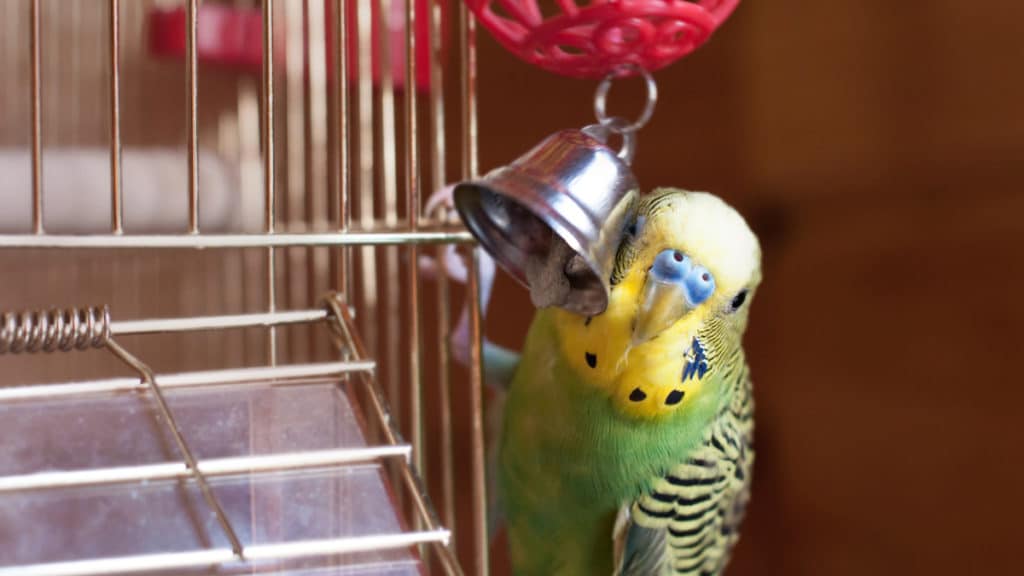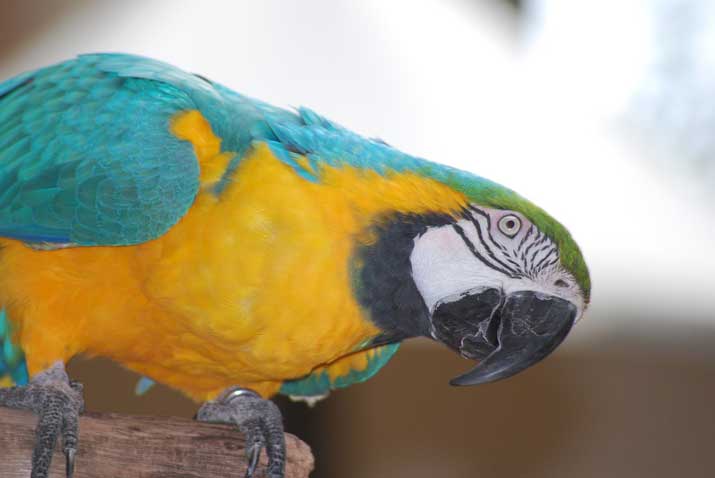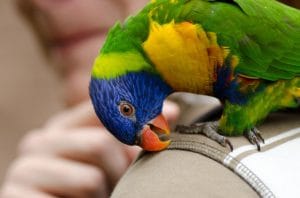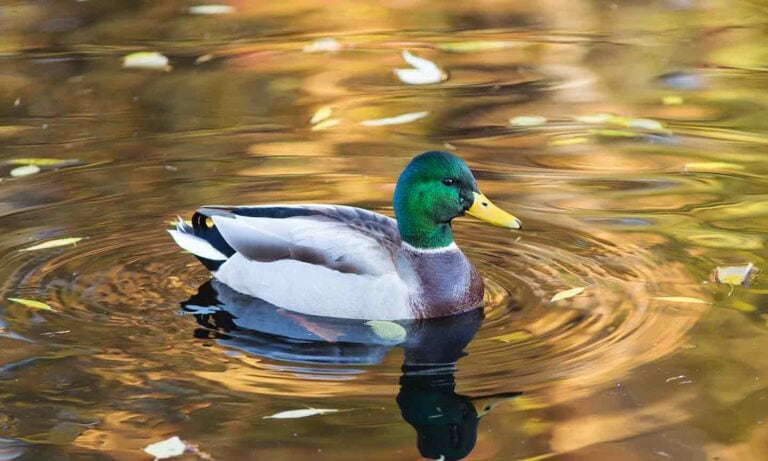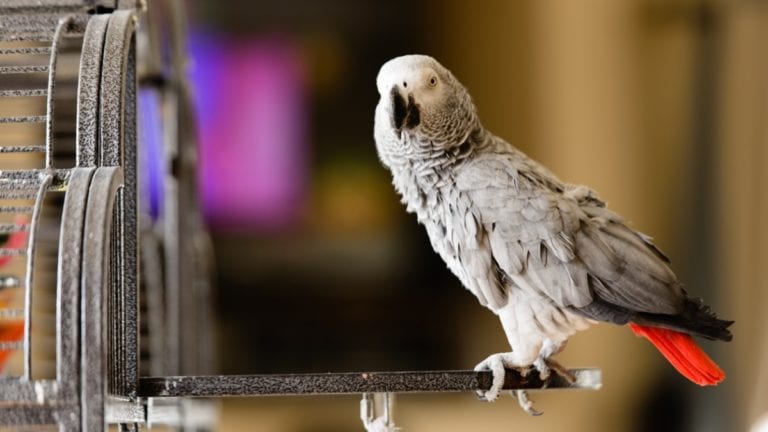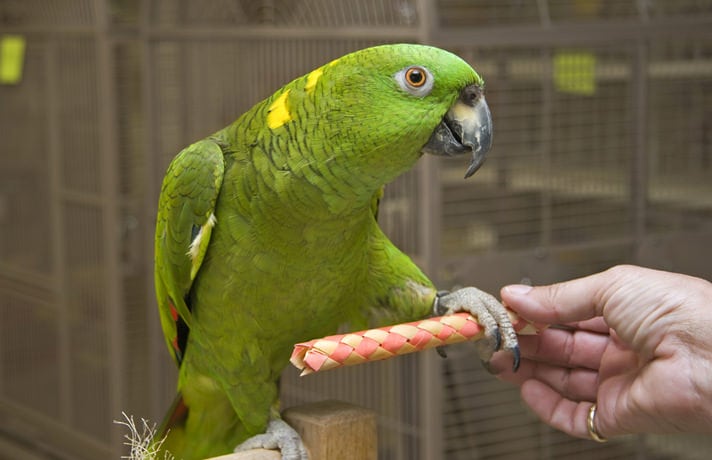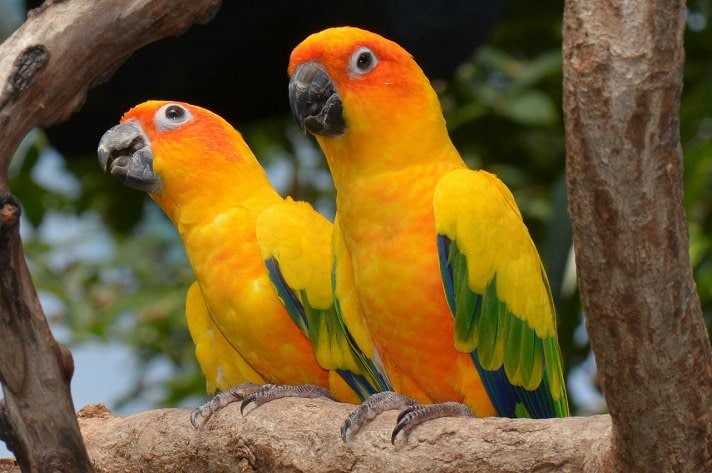Have you considered that a flock of four parakeets could be a $4,000 investment over their lifetime? Or that two Amazon parrots and two macaws could cost almost $6,000 annually? These prices don’t include initial setup, such as the cost of a cage, bowls and perches. They also do not consider the purchase price for the bird from a pet shop or breeder, or the adoption fee if the parrot is adopted through a non-profit organization.
The Price of Pet Birds
According to the American Pet Products Association, U.S. consumers spent an estimated $72.3 billion on their furry family members in 2018. The ASPCA calculates that annual small pet bird care comes to about $300.
But talking with bird owners in Washington DC, Maryland, Virginia and West Virginia, their annual costs far exceed this average. These caretakers provide the best for their parrots, but save a buck where they can, and they’ll share cost-savings tips as well.
Medical costs are probably the largest expense in the overall cost of care? And those vary depending on where the vet’s office is, what kind of certifications the vet has and what tests and procedures are performed.
Bird owners have many other expenses besides medical ones. Let’s look into the continual costs for the bird over her lifetime.
Budget Breakdown
Many bird owners, such as Erin P. Doherty of Washington DC, “put the birds’ best interest ahead of cost. Erin’s annual budget for her four parakeets is:
- Annual Exam ($75 per bird): $300
- Quarterly Grooming ($18 per bird): $288
- Medicine (As needed): $20
- Bird Food (Small bird pellets, healthy seed diet): $100
- Other bird food (Milk thistle, Millet, Liquid Kelp): $86
That’s about $190 per bird, however, if Doherty cares for each bird an average of 6 years, the total cost of her flock is $4,524. While parakeets may seem cheap at a pet store, to properly care for them can cost thousands over their lifetime.
If a little parakeet no longer seems like a bargain, consider the expenditures of a multiple bird household. John Kerns of Virginia and his wife Bobbie share their lives with two blue-and-gold macaws and two blue-fronted Amazons. When asked about their bird budget, this is how they broke it down:
“For 2013, our total categorized expenses for the four birds was $5,988,” Kerns said. “Of that, vet expenses were $2,706. That includes annual well bird checks and nail trims. Of that, only one visit was for a sick bird and that was $621.”
Annual pet bird exams include, according to the Association of Avian Veterinarians (AAV), being weighed with a digital gram scale, examined physically, including “evaluation of the eyes, ears, nares, beaks, oral cavity, choana, neck, crop, pectoral muscling, wings, plumage, belly, vent, legs and feet, spine, and preen gland (if present).” Your vet can examine the heart, lungs, and air sacs are with a stethoscope.
Bird Food and Beyond
Kerns also discussed his parrot bird food budget. “For pellets, milk thistle, and nuts, we spent $1,245. Not included in these costs are visits to the grocery store for fresh organic veggies and fruit and various grains. Those costs are just part of our household grocery costs. They are part of the family, you know.”
Debbie Russell shares her home with 12 species, from a cockatiel to several large macaws. On average and depending on species, the cost of food alone is between $200 to $400 a year per bird.
“My motto is feed you parrot well or spend more money at the vet,” Russell said.
Her annual toy budget for each bird is similar to food, between $200 and $300 per year per bird.
Larry and Suzanne Cromwell have 11 birds from parakeets to Timneh African greys and spend between $1,500 to $1,800 per year to feed the flock. Suzanne Cromwell says, “Basic pellets aren’t that expensive but when you add vegetables, sprouts, fruits, grains such as quinoa, and treats like birdie bread and Avicakes, the bill does go up.”
Do they have to spend this much? “No, but we want our birds to have a well-rounded diet, Cromwell says. “There is also the question of portions. We know that we provide more than is required, but we try to provide an interesting and balanced diet.
Melissa Kowalski owns Critters & Conservation in West Virginia, which provides hands-on animal education programs for all ages. She has six parrots and 23 other animals in her care, and has an interesting perspective on how much more expensive parrots are than the other creatures.
“For last year, the maintenance cost of the animals, including food, toys, perches, cage furniture, bulbs, lamps and vet bills Š[the] six parrots cost approximately $3,000,” Kowalski said. Her other 23 animals (including hedgehogs, snakes, lizards, frogs, and others) were approximately $1,500. “Parrots are 1/5 of the animals, but represent 2/3 of the total cost.”
Kowalski spends roughly $500 on each bird in her flock annually. However, when one of her birds was hospitalized, Kowalski spent far more. “[My parrot] likely had $1,700 spent on her last year.”
Pet Sitting
Pet sitting is an expense many new caretakers might not consider. “When we go on vacation, it can cost $30 and up per day per bird to have them boarded at the vet, Cromwell says. “Independent shops and people usually charge similar rates. Like most bird people, we would like to keep our birds at home and have a bird sitter come in to take care of them. Even with the most reasonable sitter the cost is $40 a day and up.
Playgyms, Playstands & Nets
To give parrots safe and enriching time out of the cage, many choose to purchase a playstand and other outside-the-cage accessories. Denise Crosson of Virginia, who shares her home with three parrots (a blue-and-gold macaw, a mini macaw and a Senegal) said: “Spending $150-200 for a cargo net or Atom may seem like a big investment to some, but they are my birds’ playground.”
These items get heavy daily use, according to Crosson. They are often chewed but remain safe and sturdy after more than six months of use by three birds. “So at a daily per bird cost they are actually quite a bargain, she says.
Optional Aviary
An aviary is another possible expense. Access to fresh air and sunlight is beneficial for a bird? mental and physical well-being. What we can? offer, we emulate as best we can.
Doherty is saving to address the problem. “I am getting some bird lighting put in because I live in an apartment that gets insufficient light,” she said. “A lighting expert put in the first track as a favor to the birds; however, the additional tracks will cost $400 to $600.”
Fresh air is important for people too. If a flock has African greys, cockatiels or cockatoos, all birds that produce a large amount of dusty powder down, an air filter may also be a necessity and can cost hundreds of dollars.
Hidden Costs
What expense might we not anticipate? “Emergency trips to the vet with a sick or injured bird, Russell says. “These can range from a few hundred dollars to a few thousand.”
Kowalski also experiences “surprise” vet bills when a bird is sick, but has also had to purchase a power washer, and finds that her water bill is higher from using it to clean bird cages and bird room mats. She has also had to replace trim in her home [because birds chewed on it].
The Cromwells are familiar with the cost of replacing items too. Their Senegal parrot and African greys find “so many delightful things to taste and chew: leather wallets, rubber handles on hair brushes, cell phone cases, wood cabinets, trim, beams and plaster,” they say. “If your birds are not cage potatoes, sooner or later you may have some replacement or repair work to do.”
Crosson invested in steam cleaners. “My birds think these are toys, at least the hand-held one. They follow me from above chattering at me and the steam trail. I bought a large floor model steamer as well.”
Remember the Essentials
You don’t need to purchase everything mentioned in this article to provide great care for your birds. Give them the basics: quality food, a safe environment, and a trusting relationship with family members.
However you choose to spend money on your birds, an emergency fund set aside for unexpected vet visits is key. A medical emergency or chronic disease could truly break your birdie budget.
Posted By: Chewy Editorial
Share:
